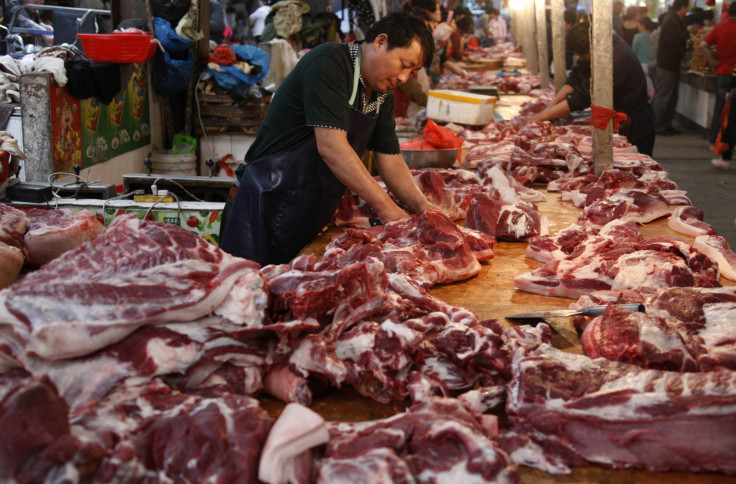China Pork Prices Expected To Rise After Chinese New Year, Analysts Say

As prices for cheaper dried-pork products in China have fallen ahead of Chinese New Year, consumers there would do well to stock up now as analysts predict pork prices will increase later this year. Demand for pork during the festive season usually causes a price spike, but consumer belt-tightening, coupled with government efforts to stabilize inventory from previous years of undersupply by increasing production, have instead caused the prices to dip.
According to official data, pork prices fell marginally to 24.8 yuan ($3.97) per kilogram in January from 24.9 yuan ($3.99) per kilogram in December. The falling prices reflected the country’s slowing demand and government’s efforts to stabilize pork prices that were spiraling prior to 2011. "Usually corporate gifts include pork products like dried meat, but that has declined significantly this year," said Pan Chenjun, a senior analyst at Rabobank, according to Reuters.
Pork prices have been falling since the government intervened in 2011 to prevent them from skyrocketing due to an undersupply of pork stocks. Beijing has stemmed the import of foreign pork, choosing to boost domestic production instead, according to Reuters, and has caused global prices to fall, as well. Cheaper feed costs and corn prices have also contributed to lower costs of production, leading to 11 percent increase in production since 2011, according to analyst group Mintec.
However, pork prices are expected to rebound soon, as China has leveled off its pork production. January's weak inflationary growth should not be seen as persistent deflation; it was attributed to China's adherence to the lunar calendar, which makes economic data during that period hard to read in the first quarter, according to the Wall Street Journal. The Chinese New Year, also known as Lunar New Year, had traditionally been a period of increased prices in China as families rush to stock up on traditional items such as dried pork and fireworks in time for the holiday. Government price data showed that consumer prices rose only 0.8 percent in January, the country’s slowest growth in five years, according to the Wall Street Journal.
© Copyright IBTimes 2024. All rights reserved.






















